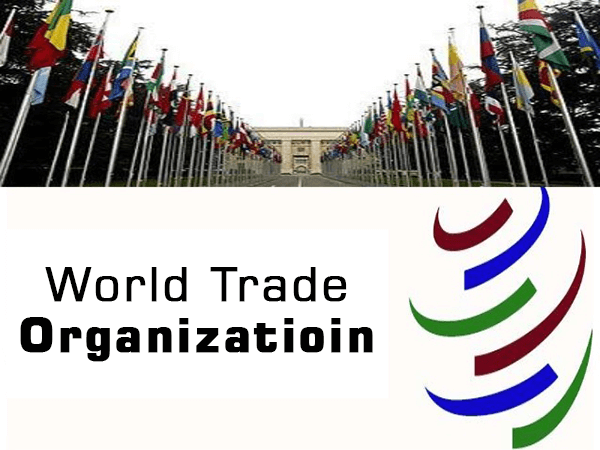What is the full form of WTO
WTO: World Trade Organization
WTO Stands for World Trade Organization. The World Trade Organization (WTO) is the only international body in the world that deals with international trade regulations. The WTO agreements, which the majority of the world's trading nations negotiated, signed, and accepted in their parliaments, form their foundation. A smooth, predictable, and unrestricted flow of trade is the desired outcome.

History
- 1995 saw the founding of the World Trade Organization. The WTO, one of the newest international organizations, replaced the General Agreement on Tariffs and Trade (GATT), which was founded in the wake of World War II.
- The international trading system that was initially established under the GATT is therefore more than 70 years old, although the WTO is still relatively new.
- The expansion of global trade during the past 70 years has been unprecedented. Exports of goods have generally increased by 6% per year.
- The expansion of commerce has been a significant driver of global economic growth, growing annually on average by 1.5 times more than the world economy.
- Agricultural and service-related discussions recommenced in 2000. These were included in a more comprehensive work agenda known as the Doha Development Agenda, which was unveiled during the fourth WTO Ministerial Conference in Doha, Qatar, in November 2001.
- Negotiations and other work on non-agricultural tariffs, trade and the environment, WTO rules on anti-dumping and subsidies, trade facilitation, transparency in government procurement, intellectual property, and several issues raised by developing economies as challenges they face in implementing WTO agreements were all included in the new work program.
- The WTO's Intellectual Property Agreement most recently saw a modification that went into effect in 2017 and made it easier for people in developing countries to get inexpensive medications. The Trade Facilitation Agreement became operational in the same year.
Roles Of The World Trade Organization (WTO)
The WTO plays many different roles. Below is a list of some of them.
- It runs a system of trade regulations that is global.
- In order to negotiate trade agreements, it serves as a venue.
- Among its members, it resolves commercial disputes.
- It assists developing nations with their necessities.
Functions Of The World Trade Organization (WTO)
- The maintenance of trade agreements.
- Serving as a venue for trade talks.
- Resolving business disputes.
- An analysis of national trade policies.
- Increasing the trade potential of emerging markets.
- Working with other global institutions.
Trade Policy Reviews
In addition, the WTO works to raise public knowledge of the scope and consequences of trade-distorting policies. To this end, it imposes annual notification deadlines and has policy review processes. Any modifications to a member's trade or trade-related policies must be made public and available to other members of the member's trading community. This rule was an important step towards more transparent governance for many emerging nations and those whose economies were previously centrally managed.
Every two years, the WTO reviews the trade policies of the 16 next largest traders, every four years it reviews the trade policies of all other traders, and every six or more years it reviews the trade policies of the world's four largest traders (the European Union, the United States, Japan, and China). The WTO Secretariat publishes its review with a companion report written by the member country's government under review after thorough consultations with that nation. Thus, the process keeps tabs on how well members are adhering to their agreements and disseminates information about recently launched markets. Additionally, it gives future trade talks and the settling of trade disputes a more solid foundation.
Key Features Of The The World Trade Organization (WTO)
- Lower living expenses while raising standards of living.
- Resolve disputes and ease trade tensions.
- Encourage employment and economic growth in the economy.
- Reduce the high expense of doing business abroad.
- Promote sound government.
- Aid in the development of nations and all individuals.
- Give the voice of the voiceless more weight.
- Help the environment and health.
- Contribute to world peace and stability.
- Be successful without garnering much attention.
|

 For Videos Join Our Youtube Channel: Join Now
For Videos Join Our Youtube Channel: Join Now










